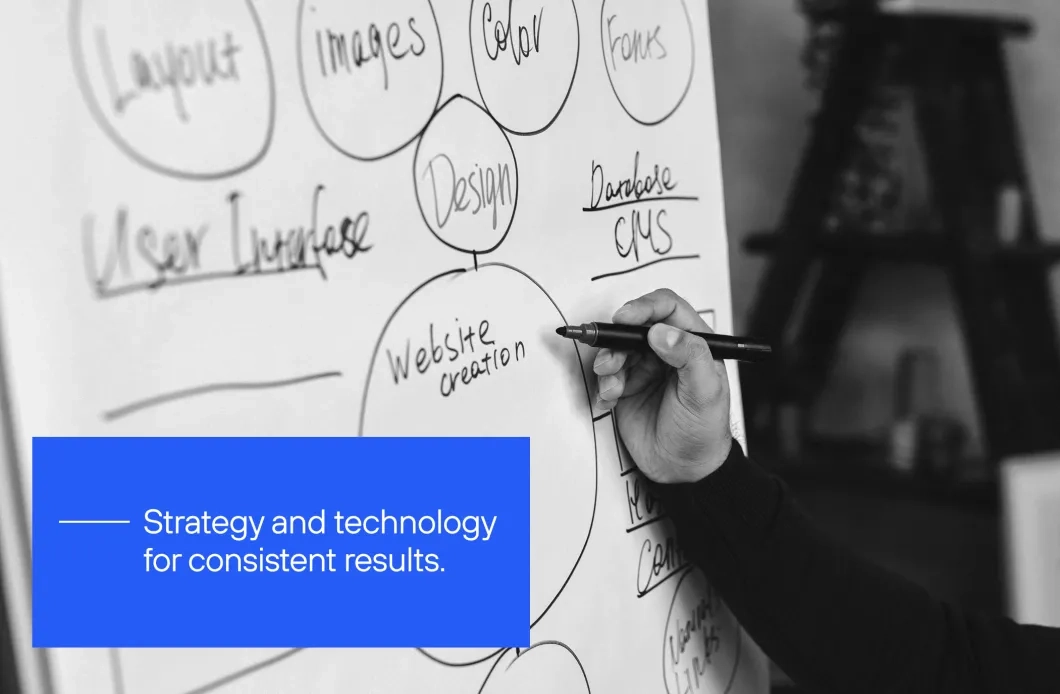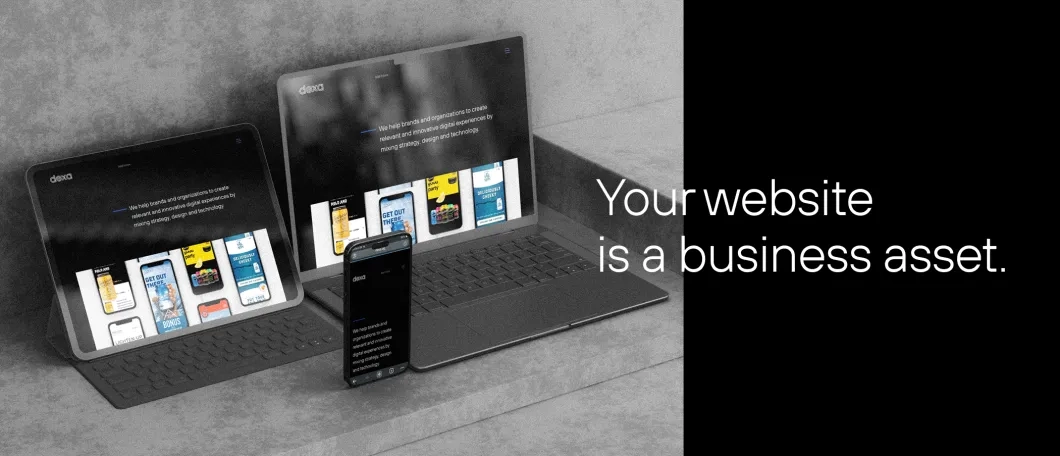
We are living in a decisive moment for the digital presence of brands. Keeping up with technological evolution and increasingly demanding user experiences is essential for any industry or business model. That’s why choosing a web company is not a simple task.
After all, websites are no longer just digital storefronts; they have become true business assets with a direct impact on marketing, sales, and brand reputation. Tech teams and decision-makers understand that selecting the wrong partner can result in wasted time and resources.
With the many possibilities websites offer today, the ideal vendor must go beyond technical execution. They need to understand the context, strategic goals, and specific needs of your business, whether the goal is lead generation, brand awareness, product launches, or system integration (such as CRM, ERP, or marketing tools).
If you’re looking for a partner to build your website and still don’t know what to consider, this article is for you.
Talk to a website development expert
What You Need to Know Before Hiring a Web Company
Before hiring a web company, it’s crucial to understand that this is a strategic decision with a direct impact on your business results. It’s an investment that carries risks, brand image responsibility, and the need for a tangible return. Your company needs to approach conversations with vendors having clearly defined information.
Start by being clear about your project’s goals: will the new website focus on lead generation, brand positioning, direct sales, or launching a product? It’s also vital to define your target audience: who are the users you want to reach?
Collecting references and benchmarks is also important in terms of design, content, or functionality. If you already have a realistic budget range, it helps avoid wasting time with vendors outside your company’s scope.
Learn more: How to Create a Strategic and Scalable Corporate Website

10 Essential Characteristics of a Web Company
Choosing the right web company should be a strategic focus at the start of your journey. Website development involves much more than just design and code; it requires expertise in information architecture, technical SEO, UX and UI, performance, security, accessibility, and integration with other digital platforms.

Read also: Digital Accessibility: Inclusive Experiences for Everyone
With that in mind, we’ve compiled the 10 key characteristics you should look for when selecting a web company, whether for a simple project or a complex digital platform with high customization and technical requirements.
- Ability to Understand Your Business
Beyond executing technical tasks, the company must understand its strategic goals, market positioning, and specific operational needs. Evaluate whether:
- The vendor uses Design Thinking or similar methodologies to create truly user-focused solutions.
- They have successful case studies in your industry, demonstrating market knowledge.
- Experience with Projects from Similar-Sized Companies
Verify if the vendor has experience working with companies of a similar size to yours, facing similar challenges in terms of scale, integration, and security. A large enterprise, for example, shouldn’t hire a vendor with only small business experience. The complexity level is different and demands deeper technical expertise.
Meet the companies Dexa has worked with
- Expertise in Modern, Scalable Technology
The web company should be proficient in robust CMSs like Drupal, modern frontend frameworks (React, Vue.js), and DevOps practices to automate, monitor, and optimize the site’s lifecycle.
This ensures scalability, peak performance, and secure, rapid updates. For example, an e-commerce site launching flash sales needs seamless deployments and infrastructure that can handle thousands of simultaneous users.
- Built-In Technical SEO from the Start
The web company must ensure that loading time, URL structure, mobile-first design, clean code, and information architecture follow SEO best practices.
Technical SEO includes structural adjustments that help search engines crawl, index, and rank your site effectively. Without this, even great content might not perform well in search results.
- Multidisciplinary Team
UX, UI, frontend and backend development, content, SEO, Quality Assurance (QA), and information architecture must work in sync.
When teams collaborate well, the result is a more efficient and user-focused website, fewer reworks, early problem-solving, and better search engine performance.
- Agile Methodology and Transparent Processes
Using agile methods like Scrum or Kanban, with short sprints, partial deliveries, and total transparency throughout the project makes all the difference.
Clients get regular progress updates, can review and adjust each stage, and maintain control, flexibility, and alignment with real business needs.
- Commitment to Accessibility and Usability
Beyond responsive design, the site must follow accessibility standards like WCAG, ensuring people with disabilities can use it fully.
Accessibility is not just a legal or social requirement; it improves the overall experience and can expand your reach and financial results.
- Post-launch support and Ongoing Maintenance
A good web development company doesn't disappear after the launch. Look for one that offers technical support, security updates, and a roadmap for continuous improvement.
This ensures your website evolves with market demands, technology changes, and business growth.
Design system: what it is and why we use it at Dexa
- Proven Results from Case Studies
Don’t focus only on traffic or leads; evaluate results related to performance, SEO, usability, and functionality.
A strong web company will have case studies showing real technical outcomes that improve user satisfaction and business visibility.
- Long-Term Partnership Culture
A reliable web company goes beyond the contracted scope. They act as a strategic extension of your team, offering proactive improvements, result analyses, continuous planning, and insights about market trends and technologies.
Count on Dexa to build your new website
How to Know if You’re Hiring a Reliable Web Company?
Choosing a web company is a serious decision. Review their portfolio, read client reviews, and analyze how they approach your business during initial conversations.
Reputable companies ask relevant questions, show interest in your goals, and offer personalized insights. They work with defined schedules, clear stages, and multidisciplinary teams to ensure that every aspect of your website is well executed.
Bonus: Common Website Types and Development Timelines
The development time depends on the website type. Each one serves a specific business need and requires a different level of planning, design, and testing. Here’s an overview:
| Website Type | Features | Avg. Development Time |
|---|---|---|
| Simple Corporate Website | Basic pages (Home, About, Services, Contact) with standard layout | 2–3 months |
| Custom Corporate Website | Exclusive design, strong SEO, info architecture, and simple integrations | 3–5 months |
| News or Content Portals | Large content volume, category hierarchies, search filters, editorial CMS | 4–6 months |
| Sites with System Integrations | APIs, security layers, and real-time data flows | 5–7 months |
| E-commerce / Online Stores | Product management, cart, payment, logistics, marketing automation | 4–6 months |
| Complex Portals / Custom Digital Spaces | Multi-user roles, restricted areas, dashboards, and advanced data flow | 6+ months |
Timelines may vary based on customizations, internal team interaction, and approval speed.
Why Choose Dexa to Build Your Website?
Our team includes experts in strategy, design, technology, and marketing. We create memorable digital experiences, going beyond visuals and code.
With agile processes and a strong focus on quality, security, performance, and results, Dexa has been delivering value for over 20 years. Contact us to explore our case studies or request a quote for your project.
